US President Biden main loser in Saudi-led war on Yemen: Lebanese journalist to Press TV
A Lebanese journalist and former politician tells Press TV that US President Joe Biden is the main loser of the all-out military onslaught launched against Yemen by Saudi Arabia and its allies.
Nasser Kandil, the editor-in-chief of Lebanon’s al-Binaa newspaper, made the remarks in an exclusive interview with Press TV on Sunday, during which he praised the years-long resistance of the Yemeni nation against the relentless military incursion by Saudi Arabia and its regional and international allies, chiefly the United States.
“The main loser of this war is US President Joe Biden, who was vice president when the aggression against Yemen began,” Kandil said, adding that Americans have already started political maneuvers in order to find a way out of the Yemen war while suffering the lowest cost.
The Lebanese journalist stressed that the proposal of a ceasefire by Saudis as well as the proposal by Americans of a political solution to the persisting conflict are both aimed at finding a way out of the Yemen war.
Referring to a recent speech by the leader of Yemen's popular Ansarullah movement, Abdul-Malik al-Houthi, who stressed an end to the Saudi-led aggression and lifting of a crippling siege on the impoverished country, Kandil said the Houthi leader's stance showed the stability and resistance of the Yemeni people and depicted Yemen’s future horizons.
Kandil added that following Houthi’s speech, the Yemeni army and its allied fighters from Popular Committees successfully hit targets deep inside Saudi Arabia.
The editor-in-chief of Lebanon’s al-Binaa newspaper also said the enthusiastic demonstrations carried out by the Yemeni people following Houthi’s speech, were reminiscent of the presence of the Lebanese people, who rallied south of the country following a call by the Secretary-General of the Lebanese resistance movement, Hezbollah, Sayyed Hassan Nasrallah, in the face of Israeli airstrikes with cluster bombs.
"What the Yemenis have done so far has made it clear for Americans and Saudis that their maneuvers are going nowhere and that the negotiation would be only meaningful when the aggression stops, the tight blockade on ports and airports is lifted and the foreign forces withdraw" from Yemen, Kandil added.
He noted that during the past six years, Yemenis have changed the situation from mere resistance to growing operational power as the country has managed to upgrade its defensive missiles and drone capabilities.
Kandil also stressed that during the past year, Yemen's missiles and drones have provided military deterrence due to their unparalleled scientific prowess, and have been able to undermine security deep inside the Saudi territory by targeting facilities of the kingdom's Aramco oil giant on numerous occasions.
“Due to this military power, Yemenis are now in control of security in the Persian Gulf as well as major energy passageways, but those who launched this aggression [against Yemen] have suffered humiliating defeat,” Kandil said.
Saudi Arabia, backed by the US and its other regional allies, launched the devastating war on Yemen in March 2015, with the goal of bringing the government of Yemen's former president Abd Rabbuh Mansur Hadi back to power and crushing the popular Ansarullah.
The Yemeni armed forces and allied Popular Committees have, however, gone from strength to strength against the Saudi-led invaders, and left Riyadh and its allies bogged down in the country.
The Saudi-led military aggression has left tens of thousands of Yemenis dead, and displaced millions of people. It also destroyed Yemen's infrastructure and spread famine and infectious diseases across the country.
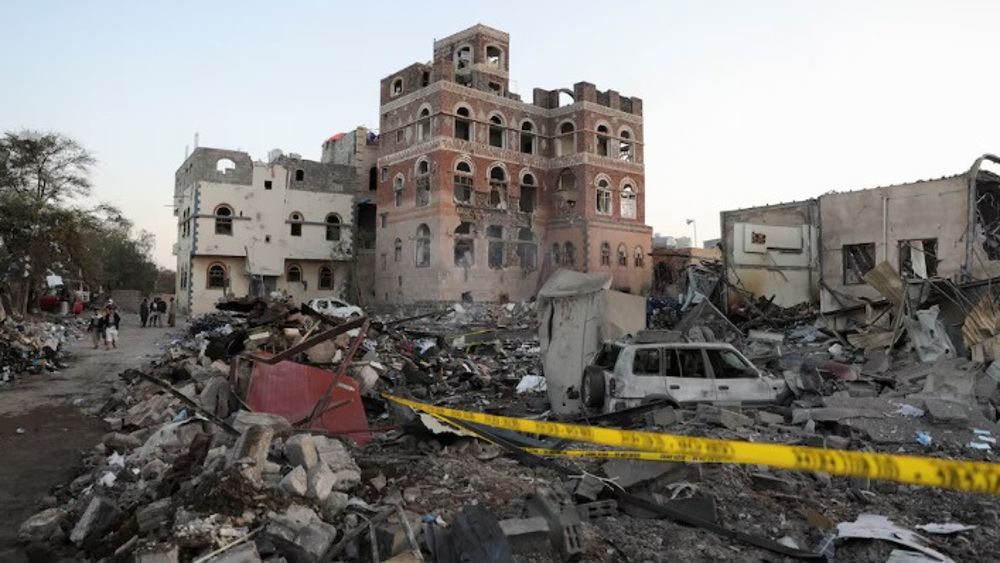
1 killed as US keeps up deadly escalation against Yemen
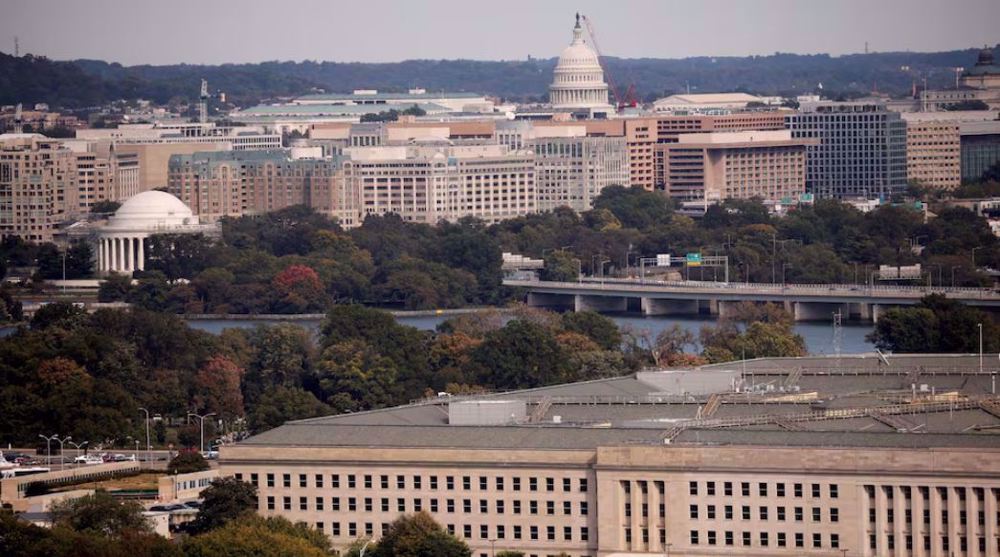
Pentagon officials placed on leave over 'unauthorized' Yemen leaks

US intensifies bombing Yemen amid ground invasion plans
Saudi defense minister in Iran for talks on regional developments
Three days from freedom: 64th Palestinian abductee dies in Israeli captivity
IAEA should maintain neutrality in Tehran-Washington talks: Iran nuclear chief
VIDEO | Press TV's news headlines
Hamas: Israel tortures Palestinian abductees while we treat captives humanely
Israeli captive in Gaza holds Netanyahu responsible for continued captivity
Tehran rejects 'baseless' UK claims about links to criminal groups
Palestinian hospital chief ‘exhausted from torture’ in Israeli prison: Lawyer


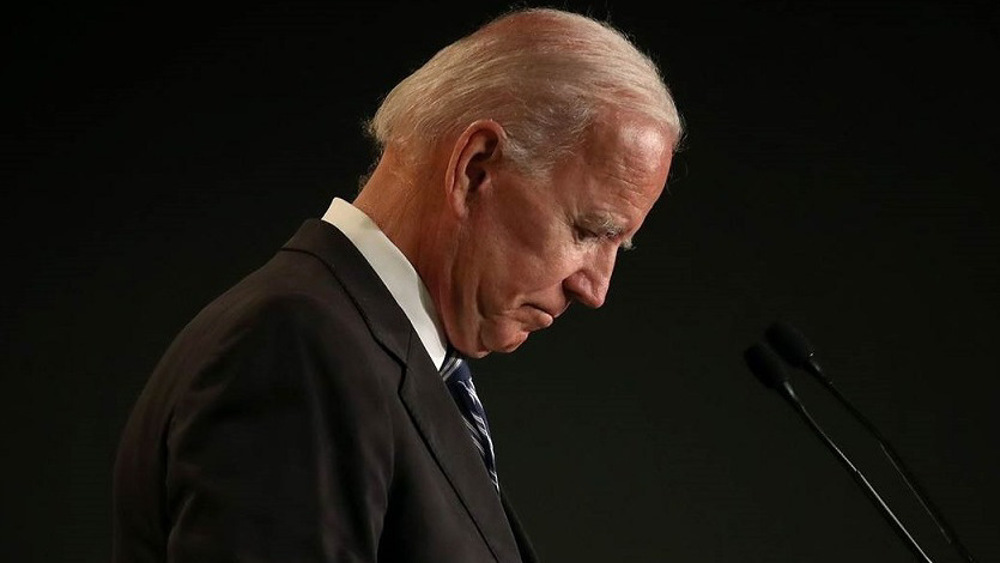




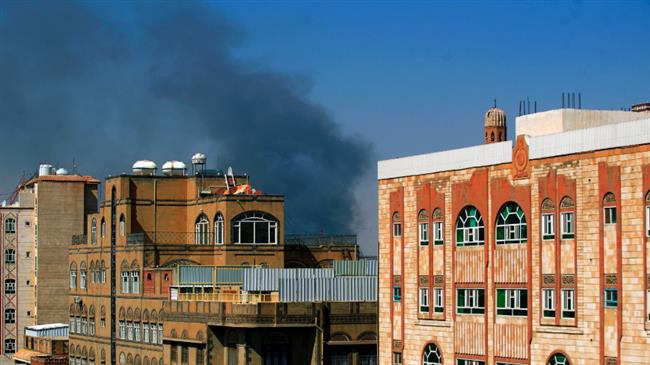
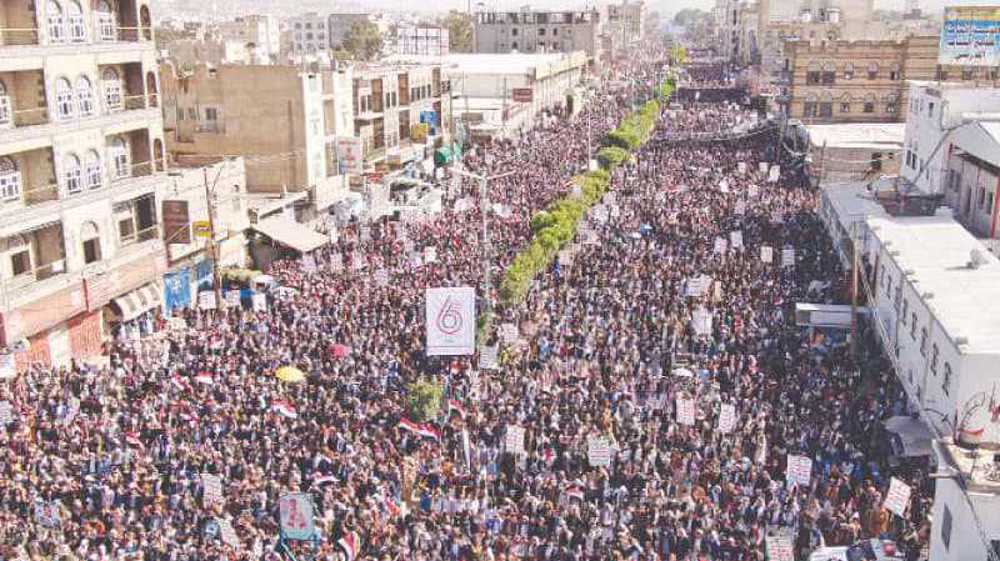

 This makes it easy to access the Press TV website
This makes it easy to access the Press TV website